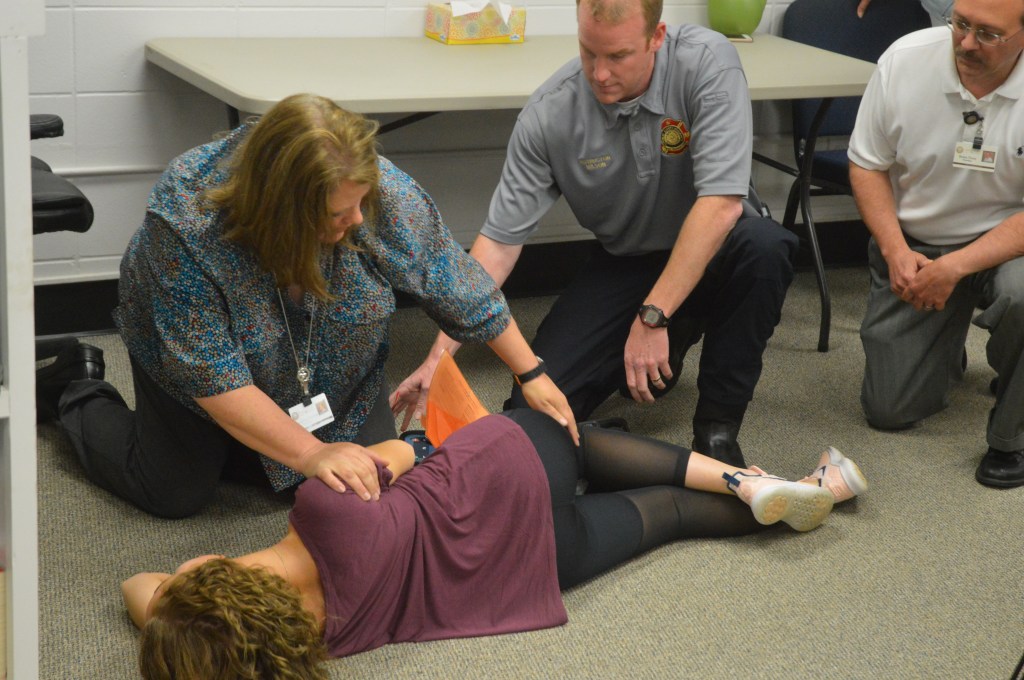FIGHTING AN EPIDEMIC: School staff practices opioid overdose procedure
Published 6:45 am Wednesday, April 10, 2019

- Samantha Fleming, a nurse and teacher at Limestone County Career Technical Center, repositions a student during a mock drill Tuesday at the center. The drill allowed Fleming, instructor Brandon Wilson and others to practice what to do if an opioid overdose occurs on campus.
No teacher wants to find their student passed out in the classroom floor from an overdose, but should the situation arise, Limestone County Schools is making sure its staff know what to do.
At Limestone County Career Technical Center, members of the school’s medical emergency response team put their knowledge to the test with a mock drill Tuesday. The situation was simple enough: an instructor — in this case, health science instructor Samantha Fleming — enters the computer lab to find a student on the floor.
True to her training, Fleming rushed to the student, using a two-way radio to call for help while she made sure the student — played by Ardmore High School junior Emma Parker — had a pulse and was breathing.
“Our emergency team is trained to look for a few things,” said Elayne Perkins, lead nurse for the school district. “With opioid overdoses, the student is probably going to have a faint pulse and the respirations are going to be suppressed, under eight a minute.”
The team is also trained to respond to a suspected opioid overdose with Narcan and an automated external defibrillator, in case the Narcan isn’t effective. Perkins said she hopes teams will soon have access to two doses of Narcan, as it’s usually procedure to give a second dose if the first one isn’t enough.
In the mock drill, though, the first dose worked, and Fleming moved on to the next task — rolling Parker onto her side and warning others at the scene that she might fight them.
“We have to roll them on their side, because they can throw up,” Perkins said. “Or they can come out and be combative.”
Perkins said she isn’t aware of anyone suffering from an opioid overdose while at a county school. Despite this, teams throughout the county hold emergency drills at least once per semester so they’re ready to handle any situation that occurs.
“Practice doesn’t make perfect, but practice helps a whole lot,” she said. “The quicker the response, the better, and the more people that know what to do, the better.”





